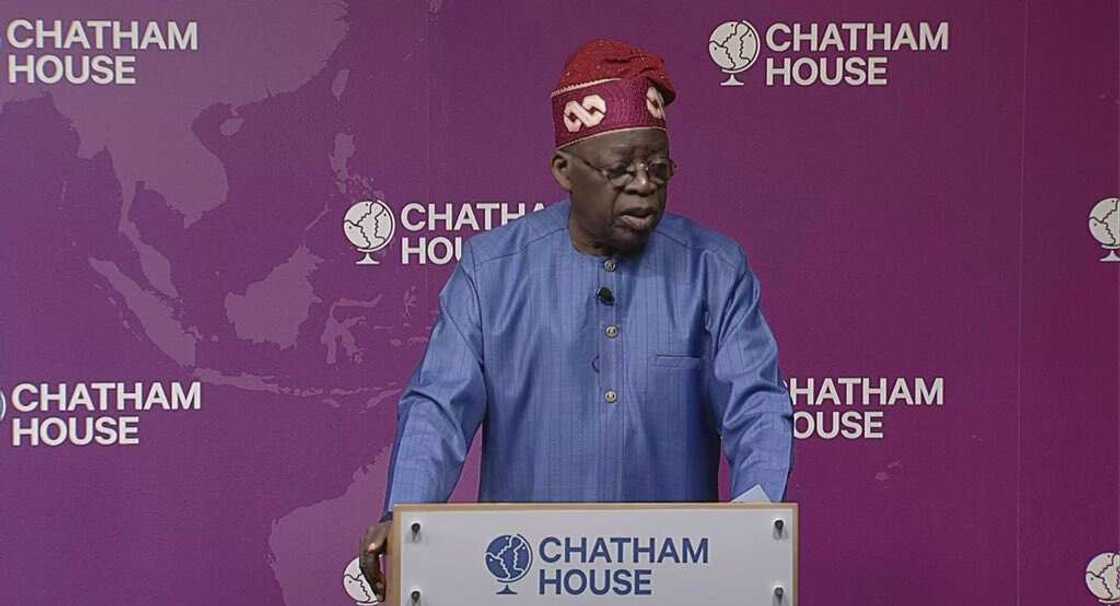How A Weaker Naira Can Benefit Nigeria: Expert Insights On Currency Depreciation"
- The Nigerian naira has depreciated tremendously in the last 25 months, going from N460 to N1,600 to a dollar
- Despite the depreciation, economic experts have strongly resisted the government's efforts to artificially boost the naira
- In this interview with Legit.ng, an economist and data expert gives reasons why Nigerians can benefit more from a weaker currency
Don't miss out! Join Legit.ng's Sports News channel on WhatsApp now!
Ruth Okwumbu-Imafidon, a journalist with Legit.ng, has over a decade of experience in business reporting across digital and mainstream media.
Since May 29, 2023, when Senator Bola Ahmed Tinubu was sworn in as President of the Federal Republic of Nigeria, the naira has experienced significant fluctuations.
The Nigerian naira was trading at approximately ₦460.7/$ on the foreign exchange market, a rate that was already described as an all-time high going all the way back to November 1980.
Between May 2023 and May 2025, the naira has reached many more all-time-highs, triggering concerns that it could even cross the ₦2,000/$ mark.

Source: UGC
The latest exchange rate shows that after appreciating last week, the naira traded at N1,539.23 to a dollar as of June 30, 2025.
While the media has been abuzz with all the negative results of the overall naira depreciation, experts say there could be several upsides to the situation.
In an interview with Legit.ng, Ikemesit Effiong, partner at SBM Intelligence, explained some of the benefits of a weaker naira.
A weaker naira can make Nigeria export-competitive
In a startling declaration, Mr. Effiong said:
“We don't need a strong currency. We need a currency that makes Nigerian exports competitive. Competitive exports mean more foreign currency earnings.”
He explained that with the naira depreciation, businesses producing in Nigeria and exporting to other countries would make a lot more money.
If a business sold its product for $10 in May 2023, that would bring it about ₦4,600 for every unit of the product.
Selling that same product at $10 in June 2025 would generate about ₦16,000 for the company. Effiong explained that with more revenues, the businesses could pay employees better and become bigger.
He said:
“In the long run, a better-priced currency is a net asset despite near-term supply shocks.”
Nigeria can get more money from crude sales
Speaking further on the matter, Effiong explained that the bulk of Nigeria’s foreign currency earnings come from the sale of crude oil and remittances.
With the naira depreciation, the Nigerian government is getting more revenue from the sale of crude oil than it did pre-May 2023.
To properly harness this situation, the country would need to improve its crude oil production from the current 1.7 million bpd to over 2 million bpd.
Remittances would have better value for Nigerians
The benefits also affect Nigerians who work for foreign companies and earn in other currencies. With the naira depreciation, their earnings convert into more naira than they did pre-May 2023.
A Nigerian worker who earned $1,000 from a foreign company in April 2023 was getting ₦460,702 as pay, but in June 2025, the same $1,000 would convert to ₦1,600,000.

Read also
Fuel price: Ayodele releases prophecy, mentions lower price Nigerians would buy petrol, video trends
Encourage Foreign Direct Inflows (FDIs)
Data shows that Nigeria’s foreign direct inflows have been on the decrease for years. Mr. Effiong pointed out that a weaker naira could encourage more FDIs indirectly.
“More Nigerians producing for export means more forex earnings. With reinvestment into the economy, we become a more competitive business environment, and more foreign actors will want to set up here to take advantage of the lower cost of Nigerian labour.”
With a weaker naira, whatever foreign investors spend in Nigeria would translate into less compared to other currencies. This would make it more attractive for them to come and produce in Nigeria and export to other countries.
For instance, if a foreign investor sets up a business in Nigeria, paying its staff up to N1 million per month, the staff would easily be placed in the top 20% of salary earners in Nigeria, according to data from Cowrywise.
However, it translates to cheaper labor for the company, as it only amounts to about $600 to $700 per month, making it more cost-effective for them than what they would get in many other countries.

Read also
Oyedele explains how new tax laws will help FG double tax revenues, lists Nigerians exempted
A weaker currency could, thus, be a good incentive for foreign direct inflows.
Nigeria must grow exports, not artificially strengthen the naira
Mr. Effiong, however, noted that Nigeria was not fully harnessing the benefits of the situation. He called for more production and export activities across different sectors to boost the earning profile.
This, he said, would bring more benefits to the country than the government trying to intervene and hold the value of the naira.
He said:
“At its heart, currency values are determined by three factors: time, information and asset access. A managed currency paradigm disproportionately favours the few who have access to power and relationships which offers them access to information and assets (in this case, either NGN, USD or GBP).
“In other words, managed currencies invite speculation to the detriment of productive economic activities. This is fundamentally why, despite more than six decades of a managed currency regime, Nigeria has ended up with both a weaker currency than regulators would like and a hollowed-out economy that does little for every economic participant.”

Source: Facebook
He stated that any effort to artificially strengthen the currency would amount to chasing the wind, and urged the government to instead address key fundamental issues.
His words:
“Issues like technology transfer in joint venture agreements between Nigerian companies and foreign partners, concessionary financing in strategic industries that have been selected as part of a national economic masterplan, education, infrastructure, regulatory reforms, and making regulation work better, not just being punitive on operators to name a few.”
Chatham House advocates a weaker currency for Nigeria
In related news, an international research institute, Chatham House, London, has warned President Bola Tinubu not to strengthen the naira.
In a statement, the think tank listed out the benefits Nigeria is enjoying from a weaker naira.
It also explained that if the government chooses to intervene and halt the naira depreciation, Nigeria could witness a capital flight with more people moving their savings to foreign currencies.
Source: Legit.ng





